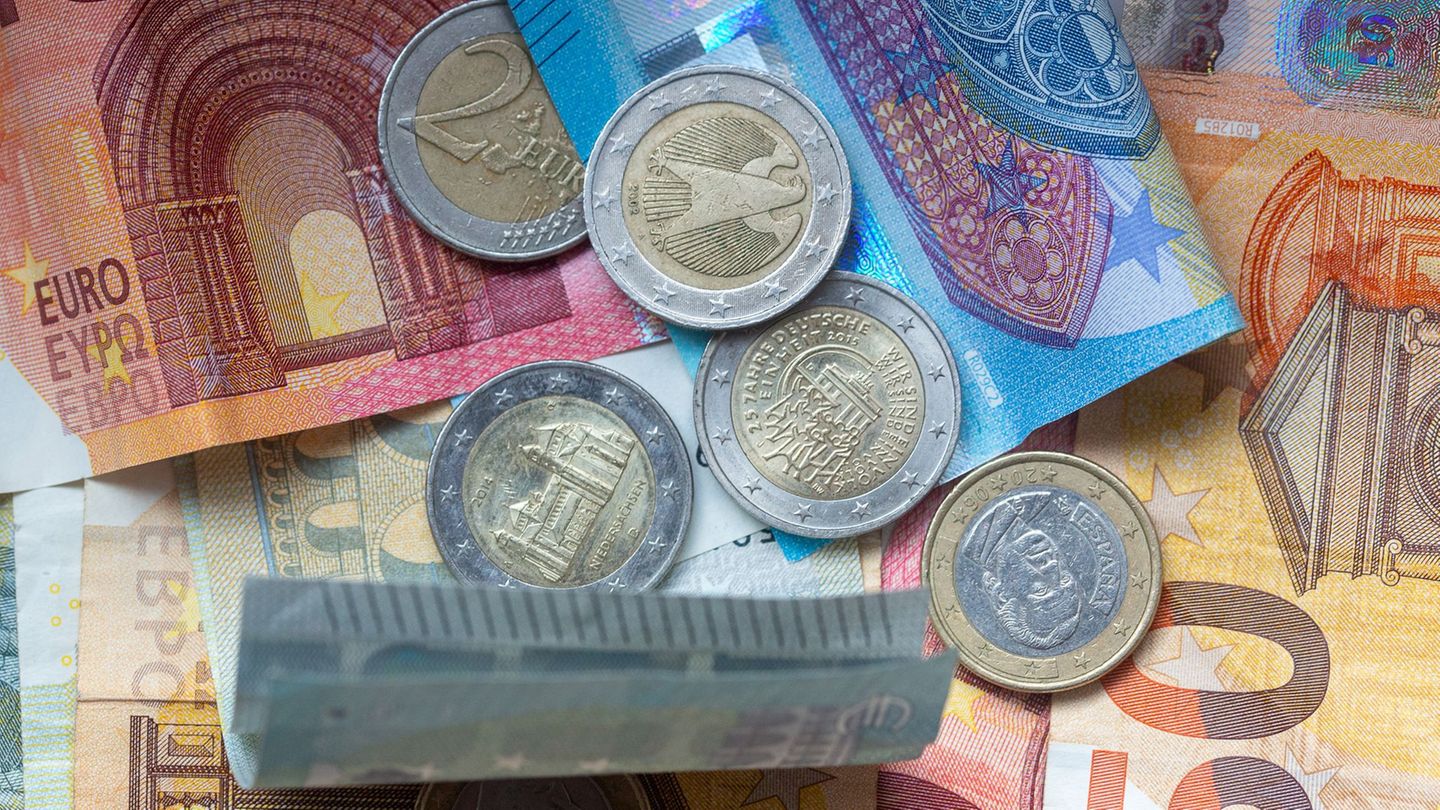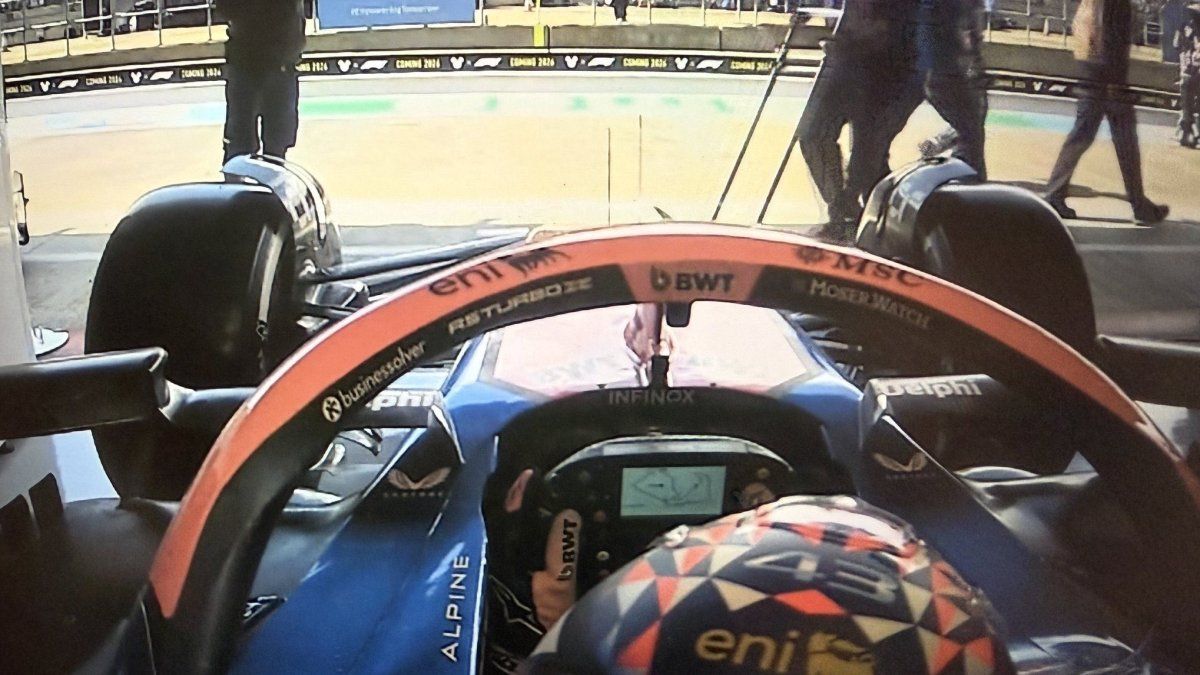Many people have long since become accustomed to arguments in the traffic light coalition. The Chancellor can even smell gunpowder smoke – but he thinks it’s worth the effort.
You can hear the frustration when Chancellor Olaf Scholz talks about the work of his coalition in recent months. “Tedious” is the word the SPD politician uses again and again. The formation of a government with three parties, and now the governing and the budget: “tedious,” says the Chancellor in the Sat.1 program “:newstime spezial” entitled “Where does Germany stand?” The constant dispute has alienated the SPD, the Greens and the FDP from one another.
Disillusionment has long since set in. Not only are the majority of voters dissatisfied with the performance of the federal government in surveys, but 13 months before the next federal election, many in the coalition no longer believe that it will continue. Trust has reached its limits. However, hardly anyone says it as openly as Green Party leader Omid Nouripour: In an ARD summer interview at the weekend, he said: “This coalition is a transitional coalition after the Merkel era.”
Scholz speaks of “battlefield”
The traffic light coalition as a gap-filler is a ruthless judgment that Scholz will not let stand. “Every government is the government before the next,” he says dryly – and sometimes the same one follows. The traffic light coalition has achieved a lot: speeding up modernization, dealing with the energy crisis, supporting Ukraine, better positioning of the Bundeswehr for its own defense. “But at the same time it is true that all of these many decisions were achieved with great effort and one always has to fear that the gun smoke from the battlefield will somehow obscure what really happened there,” he admits. That is “of course not good.”
The gunpowder smoke that has not cleared since the traffic light negotiations – by this the Chancellor probably means the comments of the traffic light partners, who, instead of praising a compromise, often make it clear what could have gone better. Nouripour speaks of a strange desire for conflict on the part of some.
Can such a coalition continue?
The tablecloth seems to have been cut between the traffic light partners. Vice Chancellor Robert Habeck (Greens) expressed his frustration on the subject of the budget: In a budget of more than 450 billion euros, it shouldn’t be that difficult to find three billion. “But we just haven’t found it. How can I put it: That’s just the way it is.” The SPD is hoping for a reform of the debt brake in the next legislative period without the FDP. The FDP, in turn, is making decisions that the coalition partners SPD and Greens must feel provoked by. The most recent example: “Roadmap for the future – a policy for the car”, a paper that aims to bring more cars into city centers by making parking free.
At a citizens’ dialogue in his ministry, Habeck lashed out at Lindner. Lindner had previously spoken out against his party’s participation in a possible coalition under Green leadership. “Yes, we are in complete agreement on that,” said Habeck. “If I ever become Chancellor, Christian Lindner will not become Finance Minister.”
A coalition cannot really continue like this, analyzed opinion researcher Manfred Güllner from Forsa for the “Bild” newspaper. “Then we should honestly put an end to this mess.”
The appeal: pull yourself together
But giving up does not seem to be a solution for Scholz. He admits that governing is difficult and it is obvious. “Nevertheless, we have to make the effort,” says the Chancellor firmly. Ultimately, it is the results that count. Germany must get used to the fact that governments will be formed for the foreseeable future by parties that sometimes had not previously planned to work together. In fact, the AfD’s often strong election results mean that parties will increasingly have to work together across previously established boundaries. It will certainly not get any easier, says the Chancellor.
It is an unspoken appeal to his government to pull itself together. Interior Minister Nancy Faeser (SPD) agrees with Scholz. “Our job is to work together for the citizens, to get the best out of the coalition and to work well together over the last year and a half,” she said in Rostock. Health Minister Karl Lauterbach (SPD) contradicted Nouripour’s assessment on X: “The analysis is wrong,” he wrote. The traffic light coalition is working and is currently clearing up a huge backlog of reforms in the health sector. The message: There is still ambition in the traffic light coalition.
In the SPD, Nouripour’s harsh statements are seen as a very early election campaign maneuver. “I see this as an initiative application by the Greens to work with the CDU in the next government coalition,” said Juso leader Philipp Türmer on Deutschlandfunk. The traffic light coalition must hold out because anything else would be irresponsible. But a continuation of the traffic light coalition? He also does not think this is realistic.
Source: Stern
I have been working in the news industry for over 6 years, first as a reporter and now as an editor. I have covered politics extensively, and my work has appeared in major newspapers and online news outlets around the world. In addition to my writing, I also contribute regularly to 24 Hours World.




